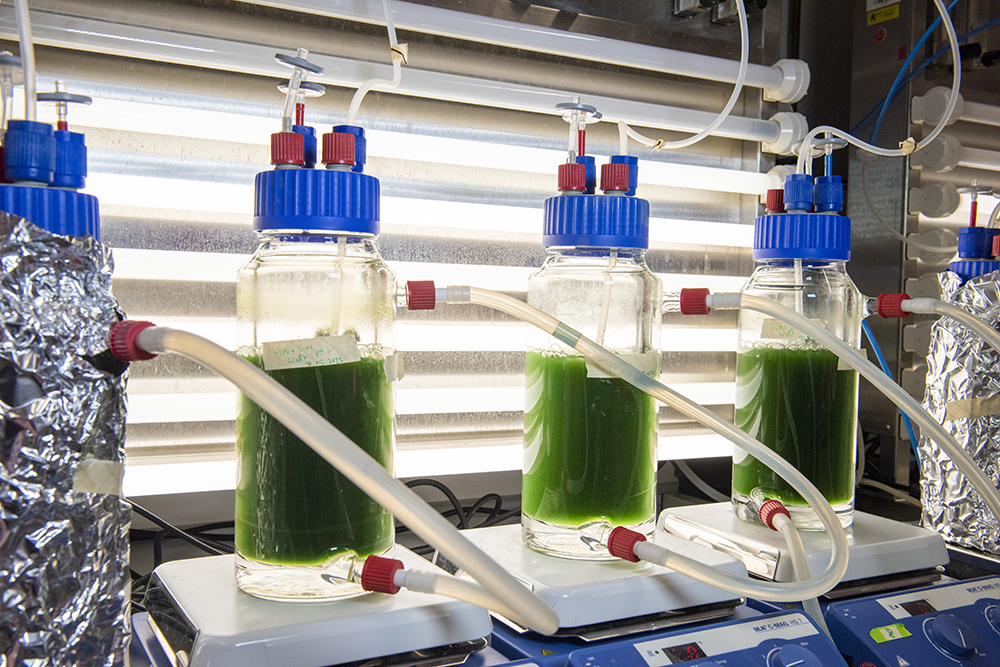Algae against cancer
Liver cancer is on the rise worldwide and has a particularly poor prognosis. Scientists from the BTU chairs of Molecular Cell Biology and Thermodynamics are working on the basis for a new drug against the disease in the AVantiLT project. The goal is to identify the active ingredient from Spirulina that is effective in tumor cells and to use new systems biology methods to elucidate the mechanisms of action. Both are necessary to develop a new drug from a bioactive mixture of natural substances and later to test it in clinical trials.
About the blue-green alga Spirulina
Arthrospira platensis, colloquially Spirulina, is an aquatic blue-green alga that is a member of the bacteria family and is often referred to as a microalga. "It has long been known about Spirulina that its constituents are able to inhibit the growth of cells from various types of cancer," says Prof. Dr. Jan-Heiner Küpper, head of the Molecular Cell Biology chair. "This does not seem to be the case for cells from healthy tissue. This would make these ingredients ideally suited as anti-tumor drugs. However, systematic studies on this are still lacking."
In the project, the scientists* are for the first time pursuing a systematic research approach to investigate the effect of Spirulina on a specific and particularly malignant type of cancer. "This will allow us to investigate the previous, still rather loose knowledge about the effect of spirulina on both healthy and pathologically altered human cells," says Dr. Sarah Kammerer, co-applicant in the project and member of the BTU Chair of Molecular Cell Biology.
The project results are to be exploited by the new biotech startup Carbon Biotech AG, Senftenberg, in cooperation with industrial partners. Already in the project phase, four highly qualified jobs will be created in Lusatia and, in perspective, an entire value chain for the production of high-purity Spirulina raw materials will be established locally. "In the future, the spirulina raw material produced in Lusatia could be used for the production of new medicines, but also for herbal medicines, so-called phytopharmaceuticals, and food supplements, all the way to vegan foods," describes Prof. Dr.-Ing. Ingolf Petrick, head of the BTU Chair of Thermodynamics.
About the project
The project "Arthrospira platensis as a raw material for the development of new drugs against cancer - validation of the cytostatic principle on liver tumor cells (AVantiLT)" is being carried out at the Institute of Biotechnology in the departments of Molecular Cell Biology and Thermodynamics and will run for five years. It is funded by the German Federal Ministry of Education and Research (BMBF) within the framework of the Coal Structural Strengthening Act with a total of almost 1.85 million euros. AVantiLT is the first approved project of the Biotech-Health Campus, which is currently under construction and thus also part of the Lausitz Science Park.

